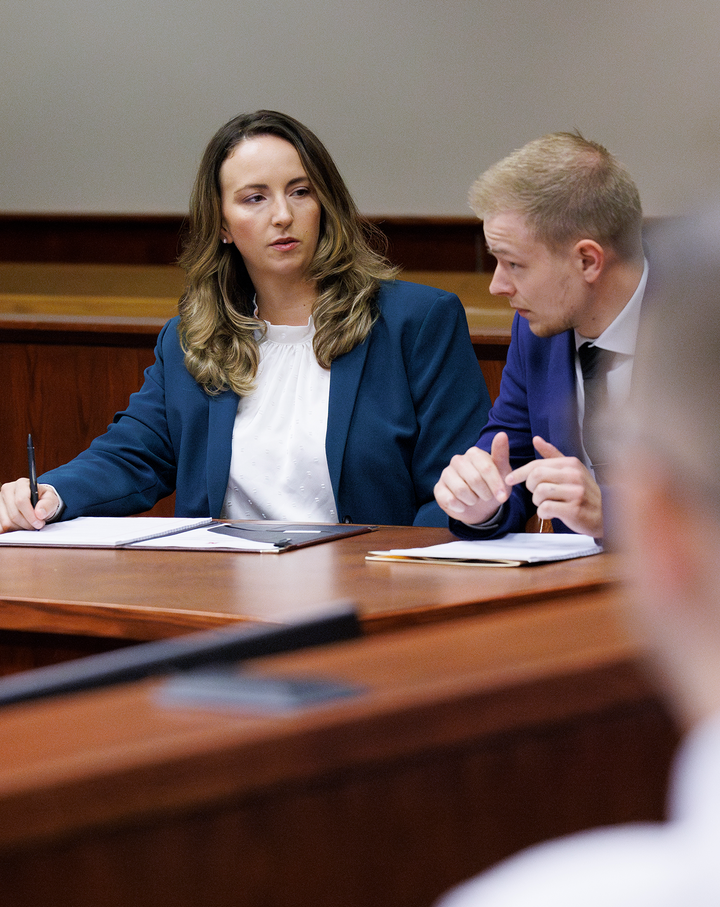Professor Jessica Murphy, ’13, joins the College as director of the Criminal Clinic. Murphy’s background includes experience in the Lancaster County Attorney’s Office prosecuting a broad range of cases, from misdemeanors and felonies to property and drug crimes. As an adjunct professor, she taught Trial Advocacy at the College for five years.

Once a student attorney in the Criminal Clinic, Murphy’s most anticipated aspect of teaching is being able to bring students to the Lancaster County Attorney’s Office, where they participate in an extensive boot camp. They will then go into court for the first time, which is often nerve-racking. The clinical environment provides a sense of flexibility and allows them to practice under Murphy’s direct supervision.
“I think one of the greatest things about this clinic is it lets students work out their nerves at a time when there's somebody there who can step in and help if they need it,” she said.
Seeing her students grow more confident was one of the highlights of teaching Trial Advocacy, Murphy said, and she enjoyed tracking their progression week by week – something she’s excited to see in the clinic.
“You see them at the beginning of the semester, and they're nervous and might be stumbling through it. Then by the end, it's just night and day,” she said.
Murphy aims to provide her students with a wide variety of experiences. This opportunity can give them a better sense of what they might face when they begin practicing law.
“These students get to prosecute real cases, so having a variety of criminal cases gives them an idea of what it is like to practice by exposing them to some situations they might see as a new attorney,” she said.
The Criminal Clinic is unique in that it is the only clinic at the College without clients. Students must take a different approach and learn how to find a just conclusion for each scenario, one that will make the greatest long-term impact.
“Instead of learning how to zealously represent their clients and their clients’ best interests, what they are learning to do is to seek justice, which is something completely different,” she said.